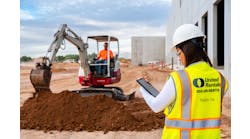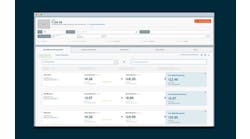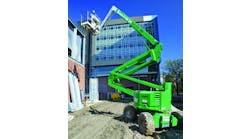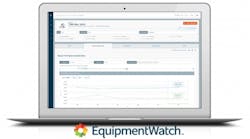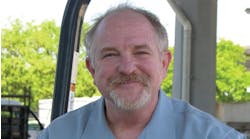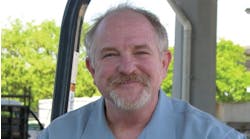Everybody knows about Toyota. We drive their cars, which have an extremely high reputation for quality. Toyota's management systems have been chronicled in books and magazines around the world for their elimination of waste and overall operational efficiencies. And in construction and industry, Toyota's forklifts are well respected.
What not everybody knows — especially in North America — is that Toyota is a manufacturer of aerial work platforms, with a controlling interest in long-time Japanese aerial manufacturer Aichi, which, at its peak, had an 80-percent market share in Japan in a number of models.
About a decade ago, Aichi, an $800 million+ company, began venturing into the European and North American markets with its aerial work platforms. Its crawler-mounted boomlifts have obtained about a 5-percent market share in Europe, and have a core customer base in the United States as well.
Toyota's management systems has transformed Aichi — already a successful company with solid products — and now is beginning to take aim at the rental market in North America. It exhibited at The Rental Show with 40- and 46-foot rubber-tired boomlifts, track-mounted 60- and 70-foot lifts and a variety of electric scissorlifts, and will soon be coming out with an 80-foot boom. “We've got a lot of things in development,” says Alan Dotts, manager of aerial work platforms for Toyota Aichi.
The Aichi 40- and 46-foot booms feature proportional control systems for smooth and precise positioning of the unit and basket; an 8-foot long self-leveling basket with 180-degree rotation, an extra-large 32-gallon fuel tank, high ground clearance and excellent gradeability, 39-inch roll-out decks, and a 3-drive system: high speed, torque and turtle mode.
Aichi's crawler-mounted boomlifts feature a unique 3-stage telescopic reach mechanism that maximizes horizontal outreach and boom shovel position, providing a wide working range. Its articulating jib boom models provide nearly 6 feet of extra horizontal or vertical reach, and 130 degrees of working range for increased flexibility.
The Aichi scissorlifts, ranging from 15 to 32 feet platform height feature a unique AC drive system, with AC brushless motors to create what the company says is a virtually maintenance-free drive system. “The AC drive has been around in forklift technology for a long time, but not in aerial work platforms,” Dotts says. “We've built in a lot of things like the AC drive, the rollout batteries — we put all four batteries in one side with a very simple slide-out battery tray — to try to keep the cost of maintenance down so that in the lifetime of the machine the owner has a much better return on investment.”
Aichi is confident enough in its machines to offer what it calls a 2-3-5 warranty — two years basic, three years hydraulic components and five-year structural components.
“There are a lot of little things we offer,” says Dotts. “If you look at our scissorlifts, on each of the bearings on the end of the scissor, we put a little cap, nobody else does that. The reason we do it is through the lift of the machine, it's going to be working through drywall dust, drybed plaster, whatever it may be, and at one point or another, something gets inside those scissors and they start creaking really badly going up and down and that causes the rental company to have to take it in, disassemble, clean, lubricate and put it back together. We put those covers on to try and stop that from happening. It's a simple thing that we do that just takes the machine that next step.”
Speaking of hazardous environments, Aichi offers a hazardous environment kit as a standard feature to protect the machine in hazardous environments, rather than as an option.
Toyota Aichi is eager to sell its machines to the independent rental company and is targeting those rather than the larger, national players. It wants the rental companies that buy from it to buy from dealers and towards that end, the company has selected 15 dealers across North America to market the product, choosing what it considers its best dealers to lead the charge into the aerial work platform business.
“Toyota has dedicated dealers so probably the biggest hurdle that we have is to try to convince independent rental companies to buy from the Toyota dealer,” says Dotts. “We've got local support. We're going to be your partner, we're not going to be your competition. You can drive to our facility and get the parts or service or whatever you need from us. And Toyota's going to take it one step further; we're going to offer to take care of that piece of equipment for you. If that machine breaks, you can call us. And our service people are going to go out there and fix that machine for you.”
